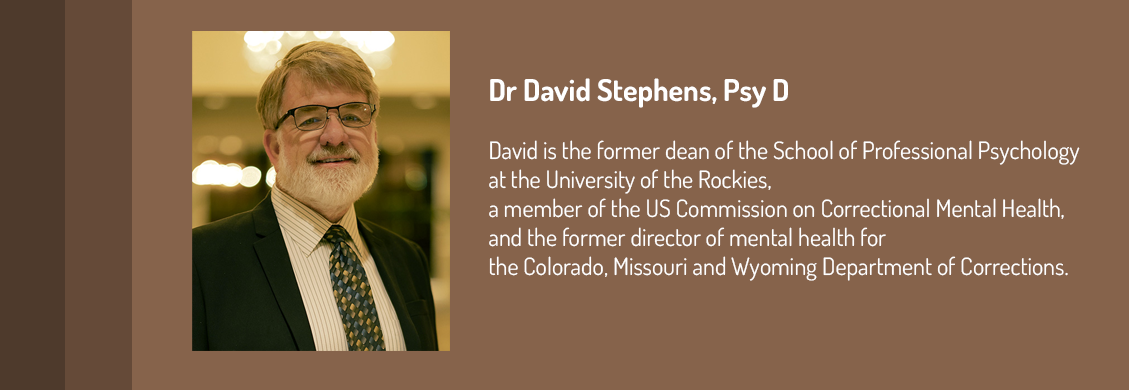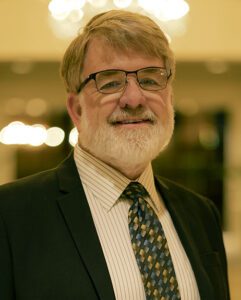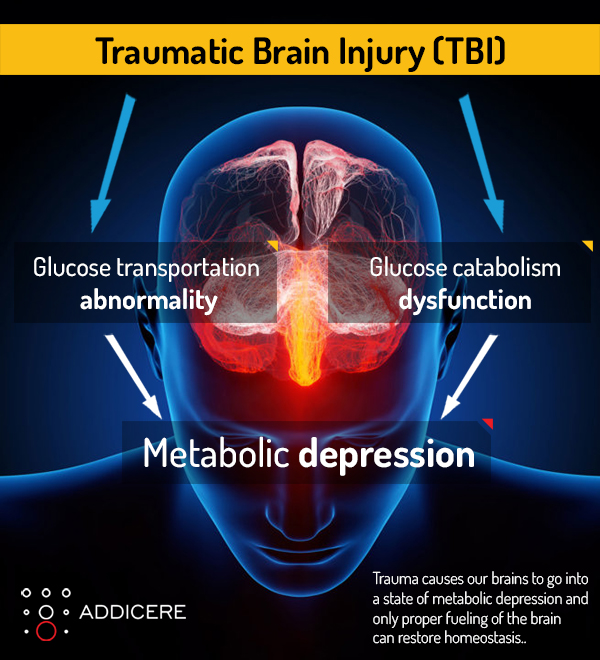- The Glucose Brainfueling introductory course is designed and conducted by Dr David Stephens, the founder and developer of Glucose Metabolism Reclamation Therapy (GMRT).
- The course is designed for the professional community of psychiatrists and psychologists but also welcomes educators, mental health and healthcare professionals to participate.
Brainfueling



Introductory Course on
Glucose Brainfueling: Glucose Metabolism Reclamation Therapy
for Psychology and Psychiatry practitioners
ABOUT THE COURSE
PARTICIPATION APPLICATION
- Selected participants will be learning with a small exclusive group of professionals and exchanging experiences with respected international colleagues.
- New revolutionary treatment method based on emerging neuroscience has been successfully used with more than 1,000 people in clinical practice.
- The workshop course consists of 5 days on location learning and cultural activities in Tallinn, Estonia.
THERAPY TOOLBOX
- Don’t miss out to learn and share the latest practical advances in brain function and neuroscience for psychology professionals of Europe.
- Secure your spot to the introductory course of the new groundbreaking treatment of TBI.
- Upon completion of the introductory course all certified participants can add Brainfueling to their personal toolbox of intervention methods.
Glucose Brainfueling Expert Program
Introductory course on Brainfueling is a 5-Day exclusive on-location active workshop to learn one of the newest neuroscientific therapy methods and get Brainfueling Certification.
- This unique workshop is the best place to acquire the latest information on the neural foundations of Brainfueling.
- Participants will learn and practice methods of intervention that help people with difficult-to-treat disorders which have been historically considered permanent and unchangeable.
- The professional discussions will refresh the epidemiology of brain dysfunction and therapeutic treatment methods.
- Participants will learn how to reverse metabolic depression.
Becoming Brainfueling certified is a step closer to being a Brainfueling licensed therapist.
To become eligible for Brainfueling international license one must complete (certificate of completion) the prerequisite Brainfueling introductory 5-day course. Brainfueling licensing is obtained by participating in a 6 month or 30 hour supervisory process conducted by Dr David Stephens or one of the other brainfueling instructor level professionals.
Supervisory process is agreed upon after the completion on the introductory course by finding a suitable supervisor. Supervison rates vary from 150-200€ an hour (60 minutes).
Brainfueling licensed therapist can practice the methodology as part of their therapeutic toolbox with all patients and clients without mandatory supervision.
This course is only available for licensed Brainfueling practitioners.
Registration will be available in November of 2024.
Becoming a Brainfueling instructor means becoming an expert in the groundbreaking methodology and also a supervisor for certified specialists.
Train the trainer program will be available for all Brainfueling practitioners who have completed the first 3 prerequisite steps and also have documented minimal of 2 years of Brainfueling clinical practice.
Available in 2026.
I am text block. Click edit button to change this text. Lorem ipsum dolor sit amet, consectetur adipiscing elit. Ut elit tellus, luctus nec ullamcorper mattis, pulvinar dapibus leo.
I am text block. Click edit button to change this text. Lorem ipsum dolor sit amet, consectetur adipiscing elit. Ut elit tellus, luctus nec ullamcorper mattis, pulvinar dapibus leo.
I am text block. Click edit button to change this text. Lorem ipsum dolor sit amet, consectetur adipiscing elit. Ut elit tellus, luctus nec ullamcorper mattis, pulvinar dapibus leo.
I am text block. Click edit button to change this text. Lorem ipsum dolor sit amet, consectetur adipiscing elit. Ut elit tellus, luctus nec ullamcorper mattis, pulvinar dapibus leo.
I am text block. Click edit button to change this text. Lorem ipsum dolor sit amet, consectetur adipiscing elit. Ut elit tellus, luctus nec ullamcorper mattis, pulvinar dapibus leo.
Dr David Stephens welcoming video for participants
Welcome letter to the participants
Trauma is an increasingly recognized contributor to mental and physical health difficulties. Emerging research indicates that a wide assortment of health problems are the result of neurochemical disruption and loss of fuel to the brain.
The introductory course on Glucose Brainfueling emanates from comprehensive scientific foundation and clinical practice, and is designed for the professional community of psychiatrists and psychologists. The course also welcomes educators, mental health and healthcare professionals to participate.
The course is designed to be a practical journey into the depths of the brain and complex neurochemistry, the course will provide participants with skills to better understand the brain itself, your students, your patients, or your clients. Rich case histories will be interwoven into the technical material, highlighting the practical, clinical nature of the 5-day on-location course. The workshop will reveal methods of intervention that can help people with difficult-to-treat disorders that have historically been considered permanent and unchangeable.
- Dr David Stephens, PsyD
Course is presented by:

"Appropriate fueling of the brain is necessary to maintain full physical, emotional, cognitive, and relational function."
- Dr David Stephens, Psy.D
Introductory course topics
Click on the headings to read more ...
Introductions:
This is an opportunity for training participants to meet each other and learn the background each brings to the training. The training is conducted from an adult education/andragogical perspective, meaning learning happens from each other as well as from the trainer. For this to occur it is important to get acquainted with each other.
Role of Glucose in Brain and Body Functioning:
Glucose is dramatically misunderstood. Popular media and even academic settings and literature dismiss glucose as simply being one of many sugars with no particular role in the body or brain, and therefore place it on a continuum ranging from being non-helpful to outright dangerous. The basics of neuroscience and neurochemistry, with a particular focus on the role of glucose, will be presented.
Review of Glucose Research and Case Studies:
A growing body of research presents the significant role of glucose in brain functioning. It is important for training participants to understand that glucose metabolism is increasingly recognized as being necessary for full brain function, and to see that research supports this concept. Case studies
Brain Function/Neuroscience Overview:
This part of the training takes a step back from the already glucose-focused elements of the training and places it in the broader context of overall brain functioning. The role of neurotransmitters, blood-brain barrier, and organs and systems of the brain will be presented.
Glucose Limitations and Glucose Burning:
These are the fundamental concepts that must be understood in order to understand brain and body dysfunction. Glucose limitations occur as the result of traumatic incidents that can range from seemingly minor sub-concussive injuries and other traumas to the severe traumas of traumatic brain injuries and physical and sexual abuse. Glucose burning occurs at varying rates due to situational factors and levels of exertion and must be understood in order to understand functional problems.
Brain Dysfunction Arising from Fuel (Glucose) Limitations:
The specific effect of glucose limitations will be presented. All brain systems can be affected by glucose limitations, including the attention system, the emotional regulation system, memory systems, behavior-regulating systems, and others. The ways the brain manages and allocates glucose, resulting in difficulties in any or all of these systems, will be presented and discussed.
Body Dysfunction Arising from Fuel (Glucose) Limitations:
Effects of glucose limitations in general were presented in the previous section. This training section will focus on how glucose limitations in the brain result in dysfunction in various body organs and systems, including the immune and auto-immune systems, the endocrine system, the cardiovascular system, and even the Musculo-skeletal system.
Glucose Conservation Modes:
A primary principle of brain function is that the brain actively manages the influx and allocation of glucose to various parts of the brain. The previous sections discussed brain and body dysfunction arising from glucose or fuel limitations, and this section ties that material together by presenting how the brain conserves glucose to ensure survival, often at the expense of specific brain functions.
GMCT in the Context of the Evolution of Therapy and Treatment Modalities:
At this point in the training the specific therapeutic approach you will be learning is introduced. Glucose Metabolism Correction Therapy (GMCT) is the treatment arising from the emerging research on the role of glucose in brain functioning. This portion of the training will place this treatment in the overall evolution of treatment approaches, and demonstrate how it is the logical and appropriate next step in improving how we address and treat brain and body dysfunction.
Alignment:
An important part of the GMCT approach is the concept and practice of alignment. Alignment applies not only to the Musculo-skeletal system (as in chiropractics, physical therapy, and other approaches), but also applies to the cognitive and emotional systems of human functioning. Participants will learn what alignment means in this context, as well as how to teach clients to maintain alignment.
Treatment Part I:
This is the point in the treatment where the information that has been presented to this point is brought together to be used for client treatment. Participants will learn how to address glucose limitations and glucose burning in the therapeutic approach, with an ongoing focus on alignment.
Treatment Part II:
This concludes the training on the GMCT treatment approach. Integrated methods that address brain, body, or both dysfunctions are presented and learned.
* The instructor reserves the right to make slight changes in the course topics depending on the group preferences.

DR DAVID STEPHENS, PsyD
David is a Doctor of Psychology, an published author, expert in Mental Health and Neuropsychology with over 20 years of senior management, academical and clinical experience.
He received his doctorate in clinical psychology from the University of Denver and is a certified practitioner of Cognitive Behavior Therapy and Dialectical Behavior Therapy. In addition David is a member of the editorial board of the Journal of Correctional Health Care and a partner of Falcon Correctional and Community Services, an organization reforming the mental health aspects of US correctional system.
David is the former dean of the School of Professional Psychology at the University of the Rockies in Colorado, a member of the US Commission on Correctional Mental Health, and the former director of mental health for the Colorado, Missouri and Wyoming Department of Corrections.
David is an author of:
Foundations of Respectful Parenting (2017);
Despondency: The Real Pandemic (2020).
"GMCT is a revolutionary non-pharmaceutical approach for treating various psychiatric disorders."
- Erik Rüütel, CEO of Addicere Psychological Consultation Agency
Chronology of the 5-Day introductory course
Estonian timezone (UTC+2)
Click on the titles below to read more ...
Certificate of passing the course will be issued to those who participated at least 80% of the online trainings, 90% of the in-person trainings and passed the course exam.
Anyone participating to a lesser extent and/or not passing the exam, will receive certificate of participation.
Online training will be held in Zoom. The Zoom link will be sent to all participants e-mail that was used to register.
Help with Zoom setup will be provided by of our Project Manager 1 week prior to the start of the program upon your request. Please notify us that you need help with setting up Zoom by e-mailing us at koolitus@addicere.com.
Recordings of the online trainings will be available for the registered participants up to one week after each course date upon request.
On-location training will be held in Addicere Training Centre at Narva mnt 63, Tallinn, Estonia.
Coffee breaks, light snacks and lunch will be served throughout the 3 days on training location. We are partnering with the Restaurant BACIO to provide our participants with the best quality light snacks and lunch menu. If you are in need of special menu, please also notify our Project Manager at koolitus@addicere.com, at least 2 week before on-location training starts.
Participants have to organize their own accommodations while in Tallinn. We have an ongoing partnership with Palace Hotel Tallinn 4* (a member of Radisson Individuals) and our Project Manager can help you with accommodations if needed at koolitus@addicere.com.
Parking near the training venue is regulated by the City of Tallinn and the parking-zone is marked "KESKLINN" (1.50€ per hour)
The course is designed for a group of 40 participants. All 40 registered participants will take part of the Online training together from March to June. But for the On-location training starting in June the group will be split into two 20 participants groups.
Group I size: 20 people - On-Location training time: 13-15th of June
Group II size: 20 people - On-Location training time: 20-22nd of June
Course total volume is 66 academical hours, plus 6 academical hours of individual work.
Online Zoom training - 15 weeks – 42 academical hours
Practical in-person training - 3 days - 24 academical hours
The whole training course program is an equivalent to 3 ECTS corresponding with Masters and Doctoral level graduate study.
Price for all participants' is 2300 € (including VAT).
We accept all major Credit Cards, online Bank Transfers and can also make an Invoice out to your organization or company. Your registration is completed when the payment is finalized.
For information on cancelation and refund see our Cancellation and Refund Policy. on related questions contact our Project Manager at koolitus@addicere.com.
Course metrics
"The biological underpinnings of specific psychiatric and neurological disorders have been outlined, and these findings have directly led to improvements in medical, psychological, and behavioral interventions for the various disorders."
- Dr Rowland W. Folensbee, Ph.D





